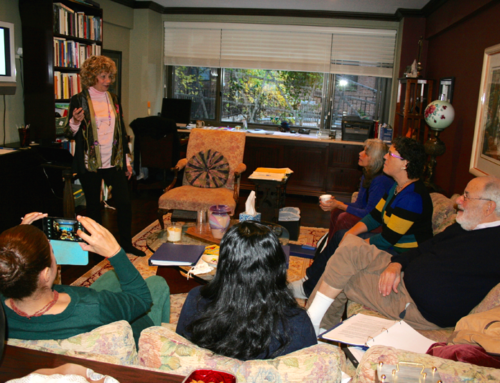Anyone who has ever frolicked in the ocean is wise to learn how to avoid getting knocked over by the waves. When a breaker threatens to inundate you with its powerful churning energy, diving under it keeps you safe. Conversely, to passively stand in the path of this impending blow can lead to feeling traumatized.
The imagery of the surf, with its potency and relentless momentum, is a fit metaphor for infertility. Infertility has the power to knock over Godzilla. Infertility is traumatic, more so since it usually hits without warning.
In my 35 years of experience as a psychotherapist, I’ve seen infertility rob strength from the most stress-hardy. But, I’ve also been privy to the resilience that carries to parenthood those who, like yourself, have suffered under the strain.
Resilience is the ability to bounce back from trauma and is integral to mental health. Some would call resilience the definition of mental health. But resilience is not a fixed commodity. It can be lost as physical and mental challenges rise beyond a person’s accrued coping skills and regained as people build coping skills that match the magnitude of the challenge.
In the face of this trauma, the key to activating the resiliency that you need is good self-care, which in turn necessitates what I call The Three A’s: Acceptance of what is, Awareness of your thoughts and feeling in the present moment, which therefore allows Adaption to the new reality.
If infertility is anything it is a total mind/body experience. Mind and body cannot be pried apart. The anguish of infertility goes beyond the mental experience of it. As the mind tries to wrestle with the shock and the physical demands of trying to conceive, the mind/body expresses the stress in the form of physical, emotional, behavioral, cognitive, relational and spiritual symptoms.
These symptoms can be viewed as a mind/body turbulence—a frenzy from which one feels the need to escape. Mind/Body stress reduction interventions go a long way to empowering you to dive under this turbulence with each disappointment, decision sideswipe, or challenge.
Diving under the turbulence can take many forms. Each one takes discipline, exactly what you’re not in the mood for. Nevertheless, once you accept that you’re in this challenge, you get to feel empowered if you build self-awareness so that you can identify what’s going on for you and what mind/body technique serves as a suitable adaptation.
What are these mind/body techniques? There are many ways to go under the turbulence. Here are a few for starters:
- Accept your upset non-judgmentally.
- Accept that you feel out of control, non-judgmentally.
- Accept that depression and anxiety are normal.
- Identify the place where stress “lands” in your body.
- Identify the mental experience(s) of this stress.
- Identify productive distractions which can serve to break the spasm of mind/body stress.
- Become absorbed in creative projects; creativity is an analogue to procreativity.
- Avoid (to the degree that it is possible) those in whose presence you feel the worst.
- Assert your needs where necessary.
- Change what is troublesome that can be changed (a habit, routine, a schedule, work situations).
- Make sure you know how to communicate effectively with your partner.
- Go where you feel most relaxed.
- Reach out for social support.
- Find a way to laugh.
- Play! Don’t postpone joy until this nightmare is over.
- Refuse to believe the negative thinking your mind plagues you with.
- Release emotions into a journal
- Allow a catharsis. Tears are healthy!
- Participate in yoga, acupuncture, Reiki or Mayan Massage for fertility.
- Breathe! The breath is a built-in tranquilizer.
- Learn meditative/mindful approaches to breaking the spasm of stress.
- Discover the value in hypnosis, guided imagery or prayer.
- Take note—the three bullets directly above have been shown to have a positive correlation to rates of pregnancy.
Unlike a wave in the ocean, you cannot necessarily predict when you’re about to be knocked over. It is imperative that you have an array of coping options, since what works on one day will not necessarily work the next. Having an appropriate intervention to select from so you can pull yourself out of a funk is the route to the resilience that you need to best support yourself to your goal.
The mind/body techniques bulleted above are developed in greater detail in my book, On Fertile Ground: Healing Infertility. Learn these techniques and the philosophical perspective contained therein, and you will have empowered yourself to be resilient for this and other traumas that you may face in the future.
Helen Adrienne, LCSW, BCD
August, 2014






